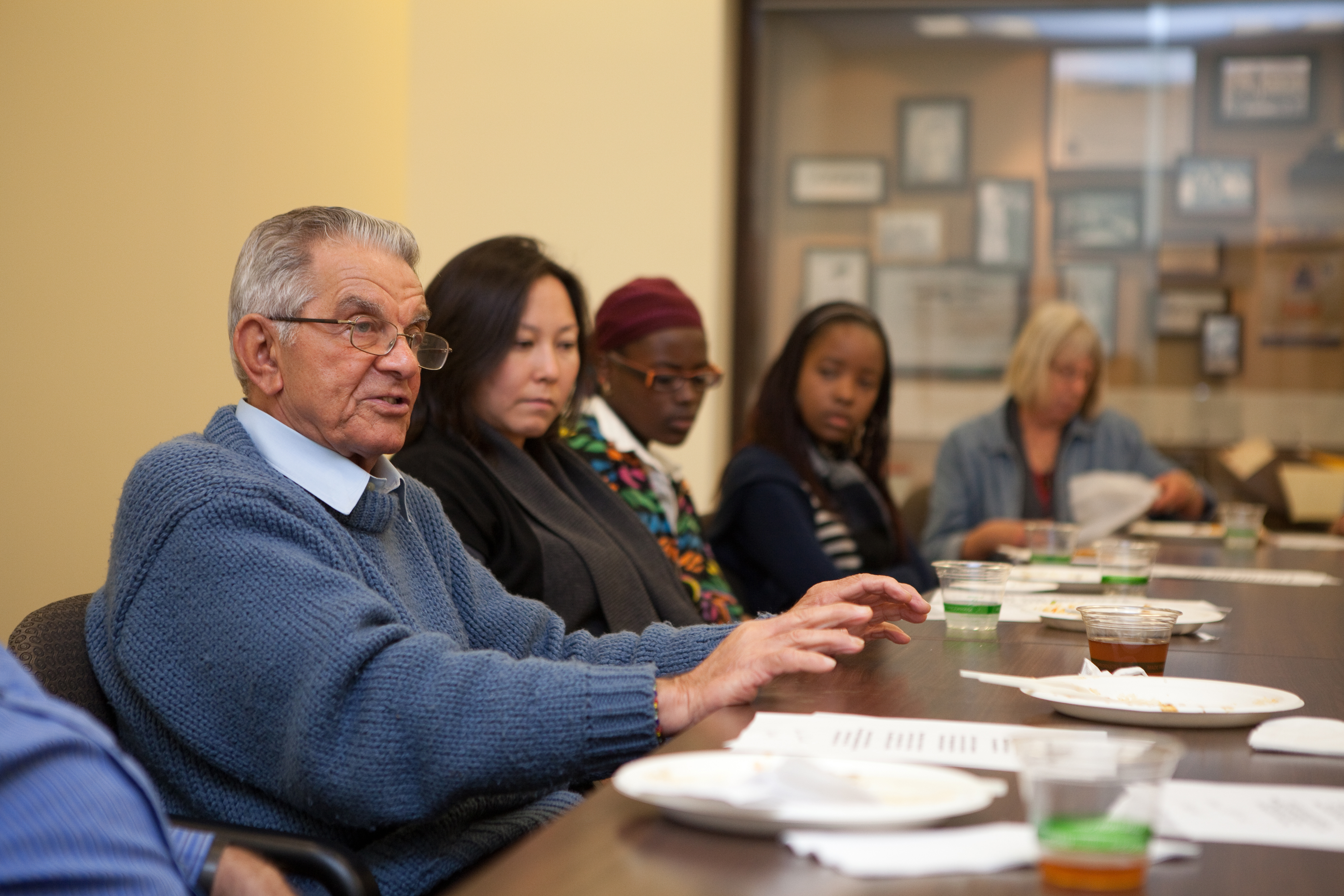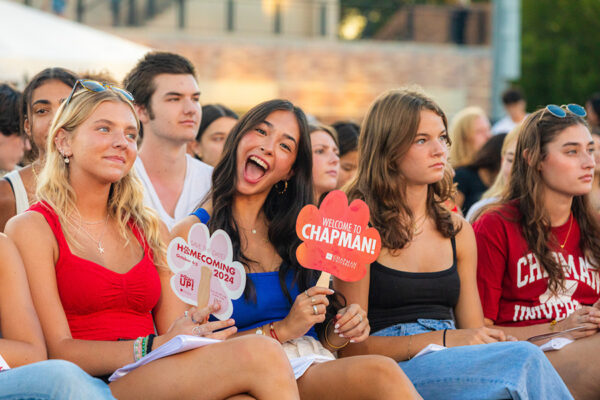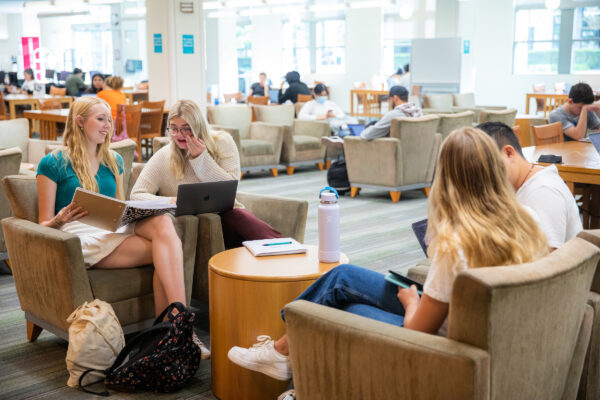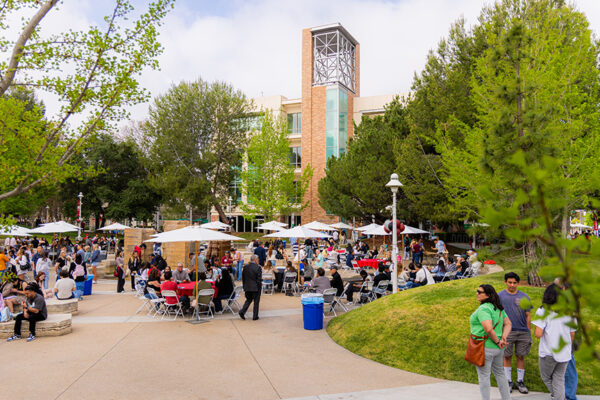Eddie Daniels, South African freedom fighter and prison mate of Nelson Mandela, visited Wilkinson College of Humanities and Social Sciences on Thursday, Oct. 21, and gave a very interesting luncheon talk about his experiences at a luncheon gathering sponsored by The Department of Peace Studies. A group of faculty, students and staff listened as Daniels recounted his fascinating life story. He started out as a young man in the whaling trade, then worked the diamond mines — and, as a mixed-race South African, became more and more socially aware of the evils of the apartheid regime as he observed the lives of the white “haves” and the black “have-nots.”
“For 300 years, the black child was inferior and the white child was superior,” he said. “The son of a white father inherited his father’s wealth and property. But the black farm worker’s child, what does he inherit? He inherits just ignorance and poverty, ignorance and poverty.
“Myself, I don’t see color – I see people,” Daniels said.
He joined the Liberal Party of South Africa, then the African Resistance Movement, where he learned to make bombs and participated in blowing up factory electric cables and the signal lines of railways. Arrested with his partners-in-arms, he was sentenced to 15 years in prison on notorious Robben Island. “There we knew prisoners were exposed to the elements, with meager clothing and bare feet,” he recalled. “I was going there for 15 years! I didn’t see myself surviving. I was terrified, and I had no one to share my fears with.” As the prison boat approached the island, he found that even the portholes were blacked out, deepening his sense of dislocation and isolation.
But Daniels somehow contrived to make it through the following years of backbreaking hard labor, poor provisions and mental torture, while witnessing the even harsher treatment of the black inmates of the prison island. One day he was approached by a tall man whom he recognized as the leader of the most important anti-apartheid group in South Africa. “I said, ‘Hello, Mr. Mandela,’ and he said, ‘The name is Nelson.’ And we shook hands.”
Daniels recalled a time when he was sick and confined to his cell, and “Mandela came and sat with me and comforted me, and he carried my bucket outside with his own. He didn’t need to do that; he was the most famous prisoner in South Africa, a man known all around the world! A man of his importance could have sent someone in his stead. But that is the kind of person he is — full of compassion. We became great friends – I think he is the greatest of the greatest human beings in our world.”
When Mandela was finally released from prison, Daniels said, “he faced assassination, but he never faltered. He addressed 100,000 people in South Africa, and through them, the world.” Mandela could have chosen retribution as his message, Daniels says, but he chose reconciliation instead. “He could have said ‘I want revenge,’ but he did not take the easy way out. When he had his enemies at his feet, he could have smited them. Instead, he embraced them. That is the greatness of Mandela. And because of that, South Africa was saved.”





Add comment